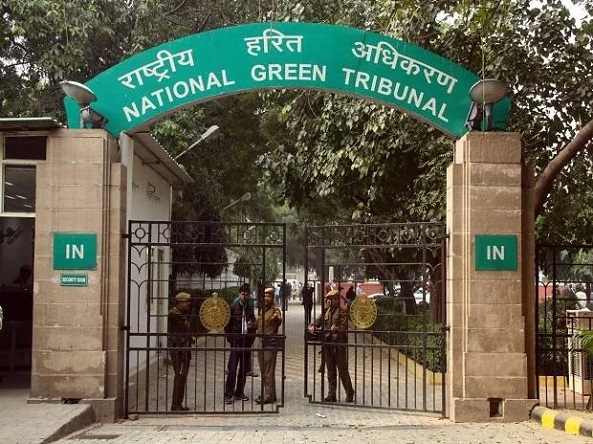NGT Imposes Environment Compensation of Rs 200 Crore On Nagaland
National Green Tribunal (NGT) on Saturday levied Environmental Compensation of Rs 200 crores on Nagaland for allegedly not managing the solid and liquid waste management causing harm to the environment. Read on for details:

New Delhi: National Green Tribunal (NGT) on Saturday levied Environmental Compensation of Rs 200 crores on Nagaland for allegedly not managing the solid and liquid waste management causing harm to the environment.
A bench of Justice Adarsh Kumar Goel while passing the order on November 24 said considering the statement about a gap in sewage generation and treatment and a gap in solid waste management, "we levy compensation of Rs 200 crores on the State on the polluter pays principle for its failure in scientifically managing the liquid and solid waste in violation of the mandate of law particularly judgments of the Supreme Court and this Tribunal."
The bench also said that the amount can be kept in a ring-fenced account to be operated as per directions of the Chief Secretary only for waste management in the State in the light of the said observations. Rs 200 crores be utilized for setting up solid waste processing facilities, remediation of legacy waste and setting up of Sewage Treatment Plants (STPs) and FSSTPs so there remains no gap, it added.
We hope in the light of interaction with the Chief Secretary, the State of Nagaland will take further measures in the matter by an innovative approach and stringent monitoring, ensuring that gaps in solid and liquid waste generation and treatment are bridged at the earliest, shortening the proposed timelines, adopting alternative/ interim measures to the extent and wherever found viable, the bench said.
The restoration plans need to be executed simultaneously in all districts, cities, towns, and villages in a time-bound manner without further delay. Compliance be ensured by Chief Secretary, the Tribunal directed.
The issues of solid as well as liquid waste management are being monitored by the Tribunal as per the Supreme Court order dated September 2, 2014, with regard to solid waste management and the order dated February 22, 2017, of liquid waste management. Other related issues included pollution of 351 river stretches, 124 non-attainment cities in terms of air quality, 100 polluted industrial clusters, illegal sand mining etc.
Which have also been dealt with earlier but we propose to limit the proceedings in the present matter to two issues of solid waste and sewage management, said the order.
The Tribunal further noted that in view of continuing non-compliance, vide order dated January 16, 2019, the Tribunal directed the personal presence of Chief Secretaries of all States and Union Territories for interaction to ensure compliance. The Tribunal also held that large-scale non-compliance of environmental norms was resulting in deaths and diseases and irreversible damage to the environment, without accountability for such failures.
Though the violation of the rules and orders of this Tribunal is a criminal offence, still there was a rampant violation by State authorities practically with no accountability which unhappy situation was required to be remedied by the involvement of the highest functionaries of the State in the interest of public health and to uphold rule of law. (ANI)
 Dynamite News
Dynamite News